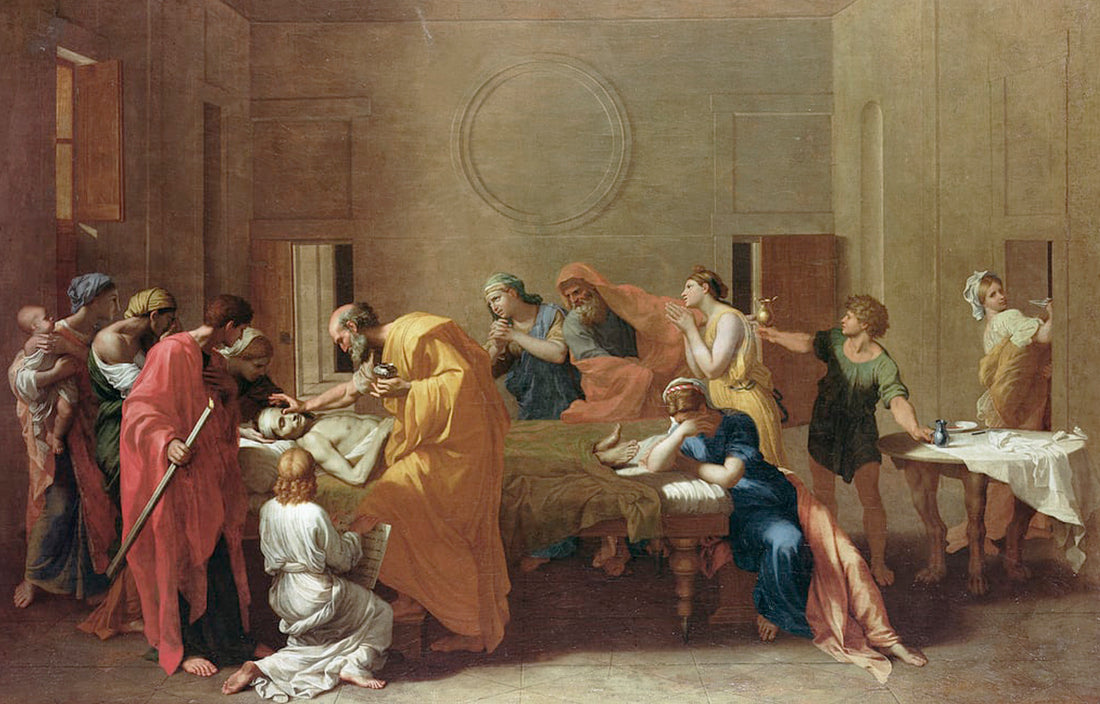The Sacrament of the Anointing of the Sick holds deep significance within the Catholic Church, serving as a source of spiritual and physical healing for those who are ill or facing significant health challenges. It is a sacrament bestowed upon individuals at the end of life or when seriously ill, aiming to bring them comfort, strength, and entrustment to divine mercy.
The Profound Meaning of the Anointing
At the heart of this sacrament lies the profound symbolism of anointing, echoing the very essence of Jesus Christ, whose name means "anointed." This sacred act not only signifies divine consecration but also underscores Jesus' mission of salvation and healing for humanity. Through his words and actions, Jesus laid the groundwork for the grace that continues to flow through the sacraments, including the Anointing of the Sick.
Indeed, the life of Jesus was marked by selfless dedication to the well-being and salvation of others. His ministry was characterized by acts of healing and compassion, reflecting God's love and mercy for all. In this context, the Anointing of the Sick serves as a vital link between human suffering and the redemptive power of Jesus Christ.
Moreover, the sacrament offers more than just physical healing; it extends to mental and spiritual ailments as well. By participating in this sacrament, individuals not only find solace in times of sickness but also experience the forgiveness of sins and the strengthening of their faith.
Suffering is an inevitable aspect of human existence, but through the Anointing of the Sick, believers are invited to unite their suffering with the suffering of Christ, finding meaning and purpose even in the midst of pain. In doing so, they become active participants in the ongoing work of salvation and healing, drawing closer to God's mercy and grace.
In essence, the Anointing of the Sick serves as a beacon of hope and comfort for those facing illness or the end of life, offering them the assurance of God's presence and love in their time of need. It is a sacrament that embodies the profound connection between human suffering and the saving power of Jesus Christ, inviting believers to embrace their trials with faith and trust in God's providence.
Administration and Symbolic Meaning
The administration of the Sacrament of the Anointing of the Sick, also known as "extreme unction," is carried out by priests, including bishops and presbyters. It goes beyond a mere physical gesture, encompassing spiritual consolation and strengthening. Through this sacrament, individuals receive divine grace to confront suffering and find inner peace.
The execution of the Sacrament of the Anointing of the Sick is delicate and carries rich symbolic meaning. The central element involves applying blessed oil to specific parts of the body, such as the forehead and hands in the Roman rite, or other parts in the Eastern tradition. Accompanied by prayers for both spiritual and physical healing, the sacrament is believed to convey grace and spiritual strength. It seeks physical healing as well, contingent on God's will.
While the sacrament may lead to physical healing, its primary effect, even in the absence of such healing, is spiritual. The Anointing of the Sick imparts a gift of peace and courage from the Holy Spirit, helping the recipient face the challenges of serious illness or the frailty of old age.
The flexibility in administering the Anointing of the Sick is notable. A person can be anointed during any weekday Mass before surgery or medical treatment, and at other times upon request to a priest. This adaptability underscores the Church's commitment to extending its healing ministry even in less severe situations, reaffirming its dedication to the integral health of the individual.
Spiritual Healing: Central Focus
The Anointing of the Sick places a central focus on spiritual healing, reaching beyond the confines of the physical dimension. This sacrament encompasses forgiveness of sins, instills hope, provides inner peace, and sometimes even facilitates physical healing. It assures individuals of God's constant care, extending its comforting presence into the realm of death. As a result, the sacrament becomes a resilient source of comfort and solace during times of suffering, offering a spiritual perspective that transcends the limitations of our material world.
Crucially, the impact of the Anointing of the Sick extends beyond the individual to encompass the community. Prayer and collective participation during the sacrament contribute to strengthening the spiritual bond among the faithful. This communal involvement offers a powerful message of hope, encouraging those facing illness to find solace in their faith and the divine presence. The shared experience fosters mutual support, creating an environment of understanding and solidarity within the community.
Through the Anointing of the Sick, the Church positions itself as the guardian of the individual's integral health. The sacrament becomes a beacon of hope and healing, offering support at every stage of life. By emphasizing the spiritual aspect, the Church acknowledges the interconnectedness of the physical and the divine, providing a holistic approach to well-being that goes beyond the immediate challenges of illness. In doing so, the Church reinforces its role as a source of spiritual guidance and support, offering a ray of hope that extends through the complexities of life and death.
